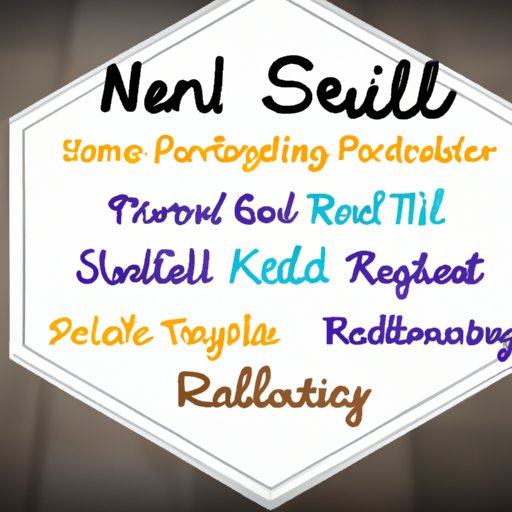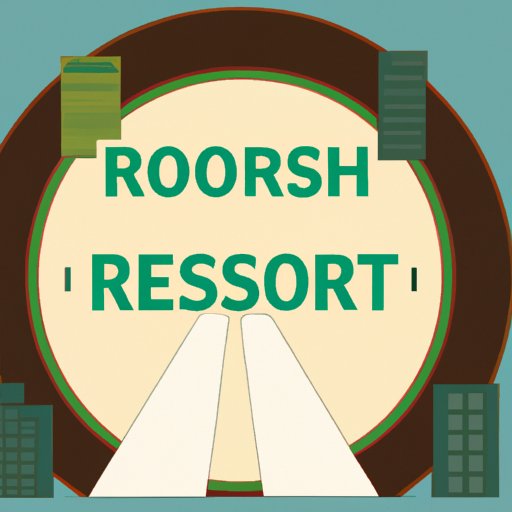Introduction
As you consider your next career move, it’s important to understand what you’re looking for in a new role. What are the necessary skills and qualifications? What should you prioritize when evaluating a potential employer? And what can you do to make sure you’re making the right decision? Knowing what you want in your next job is key to finding a role that best fits your goals, interests, and abilities.
Crafting Your Ideal Job Description: What to Look for in Your Next Role
When you’re considering a new job, it’s essential to have a clear understanding of what you’re looking for. You need to identify the skills and qualifications you have, define the job responsibilities, and set realistic expectations. This will help you craft an ideal job description that accurately reflects the type of role you’re seeking.

Identifying the Skills and Qualities You Need in Your Next Role
The first step in crafting your ideal job description is to analyze your current skillset. What qualifications and experience do you have? Are there any gaps in your knowledge or abilities that you need to fill? Once you’ve identified your skill set, you can begin to research the requirements for the role you’re interested in. This will give you an idea of the qualifications and experience you need to succeed in the position.
You can also use online resources to assess your current skill set. For example, the U.S. Bureau of Labor Statistics offers free tools and resources that allow you to compare your skills and qualifications with those required for various jobs. Additionally, many job sites offer assessments that can provide you with personalized feedback on your strengths and weaknesses.
What Should You Prioritize When Looking for a New Role?
Once you’ve identified the skills and qualifications you need for the job, it’s important to consider other factors when evaluating potential employers. Understanding the company culture is essential to determining whether the job is right for you. Do the values and mission align with your own? How does the company treat its employees? Evaluating the job benefits is also important. Does the company offer competitive salary and benefits packages? Assessing the team dynamics is also critical. Are the people you’ll be working with friendly and supportive?

The Benefits of Knowing What You Want in Your Next Job
Knowing what you want in a job can save you time in the job search process. According to a study by the National Center for Education Statistics, job seekers who know what they’re looking for are more likely to find the right job faster than those who don’t. Knowing what you want can also give you more negotiating power in salary and benefit negotiations. Finally, having a clear idea of what you’re looking for in a job can increase your confidence in the job market, allowing you to focus less on the competition and more on finding the right fit for you.

How to Assess the Opportunities Ahead: What to Look for in Your Next Role
When assessing potential job opportunities, it’s important to take advantage of networking opportunities. Connecting with industry professionals can give you insight into the type of roles available and the qualifications needed to succeed. Attending job fairs can also provide valuable information about potential employers. Finally, utilizing online resources such as job boards, career websites, and professional networks can give you access to a wealth of information about the job market.
Conclusion
When looking for your next role, it’s essential to know what you’re looking for. By identifying your skills and qualifications, researching the job responsibilities, and understanding the company culture, you can craft an ideal job description that accurately reflects the type of role you’re seeking. Taking advantage of networking opportunities, job fairs, and online resources can help you assess the opportunities ahead and make an informed decision about the next step in your career.
Knowing what you want in a job can save you time in the job search process and give you more bargaining power when negotiating salary and benefits. It can also boost your confidence in the job market, allowing you to focus less on the competition and more on finding the right fit for you. By taking the time to thoroughly evaluate the opportunities ahead, you can make an informed decision about the next step in your career.
(Note: Is this article not meeting your expectations? Do you have knowledge or insights to share? Unlock new opportunities and expand your reach by joining our authors team. Click Registration to join us and share your expertise with our readers.)
